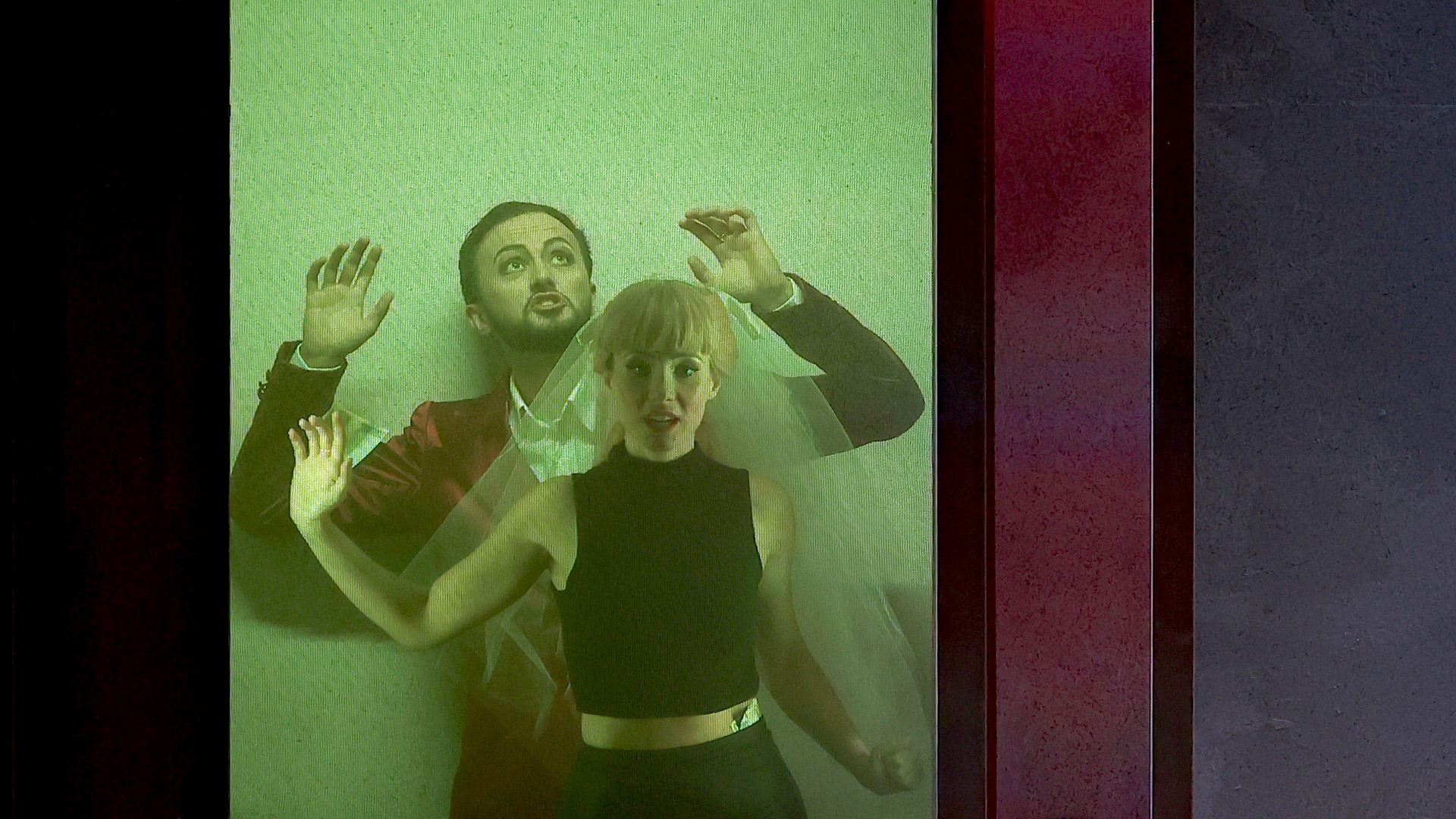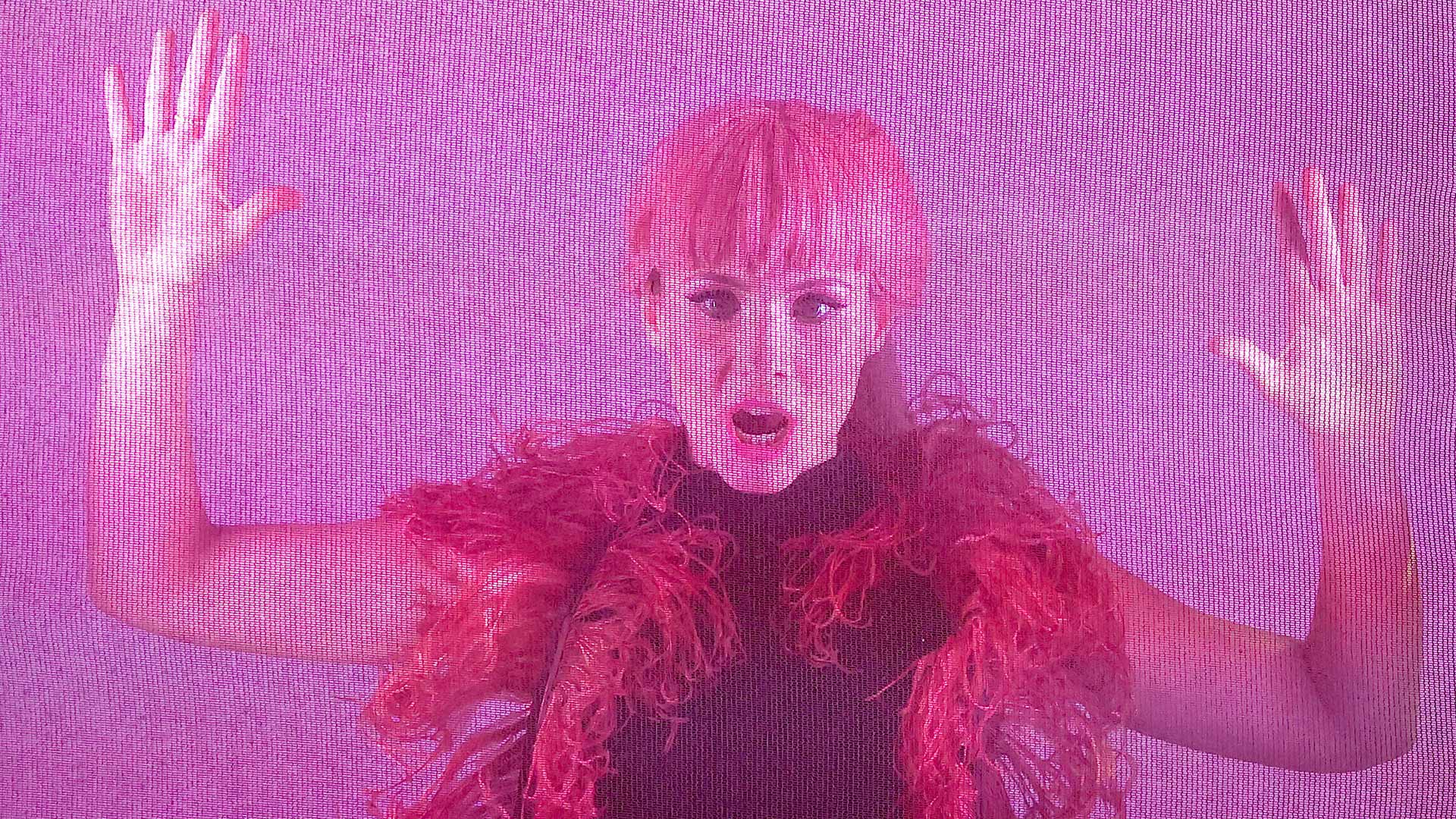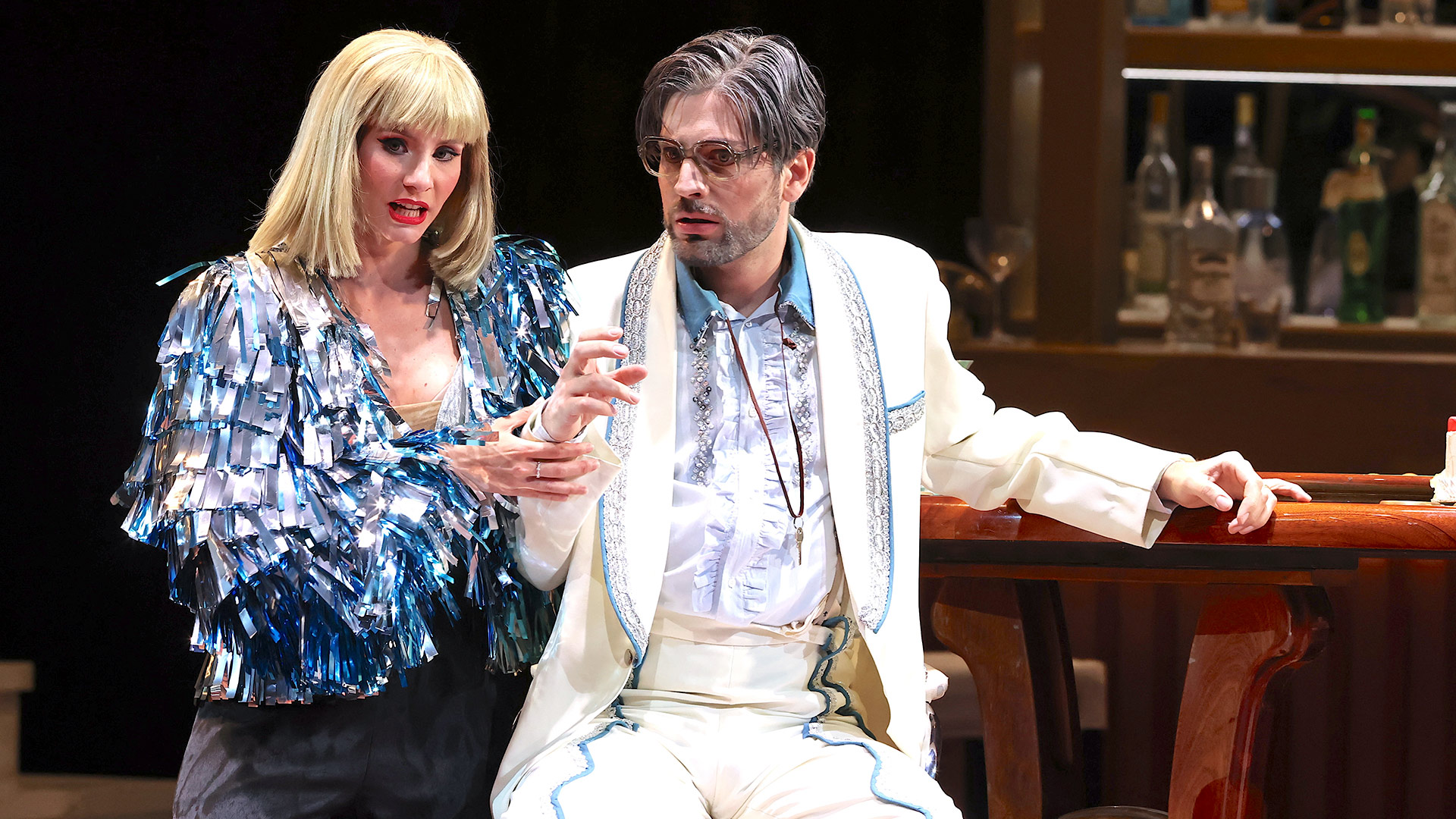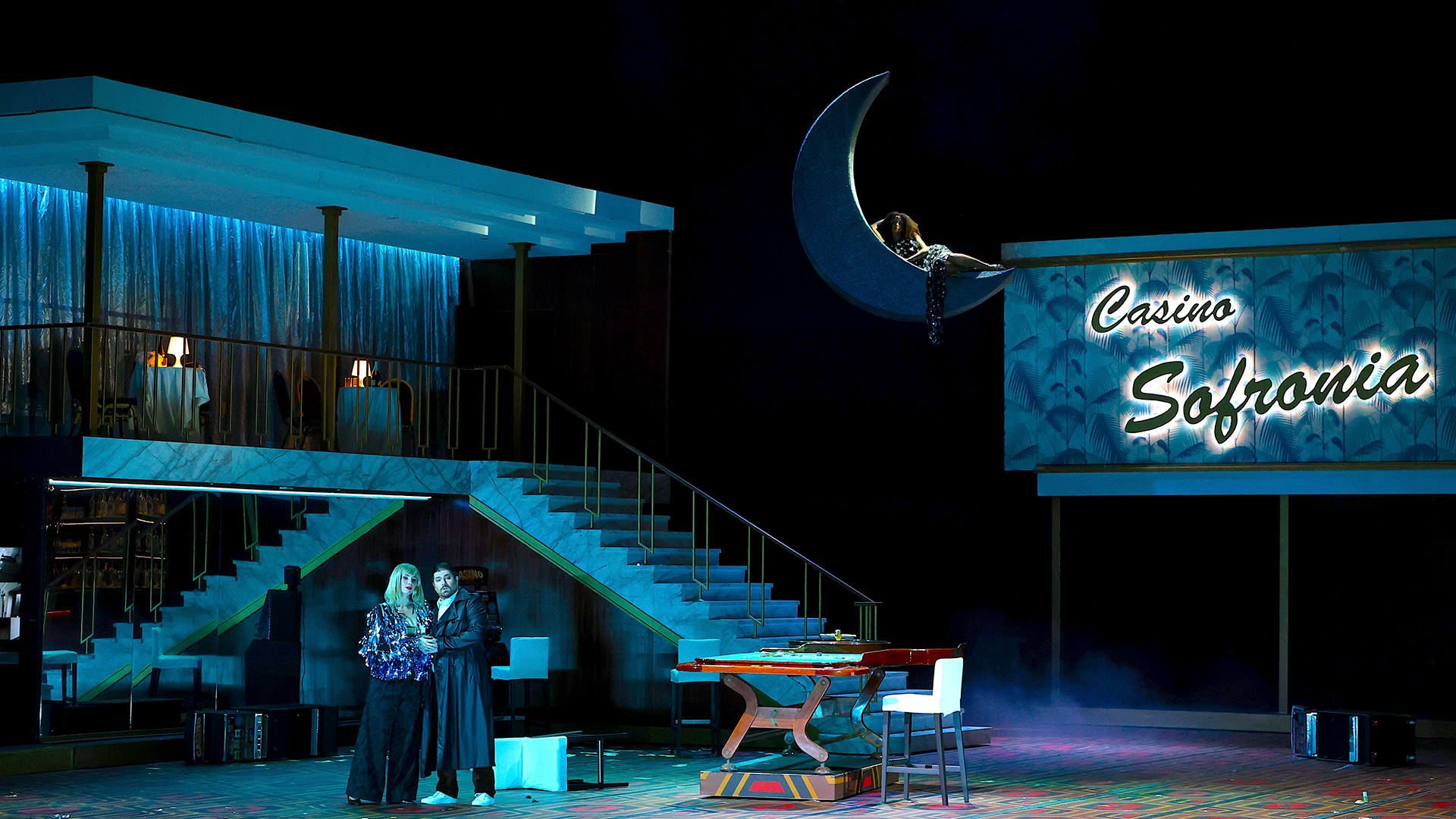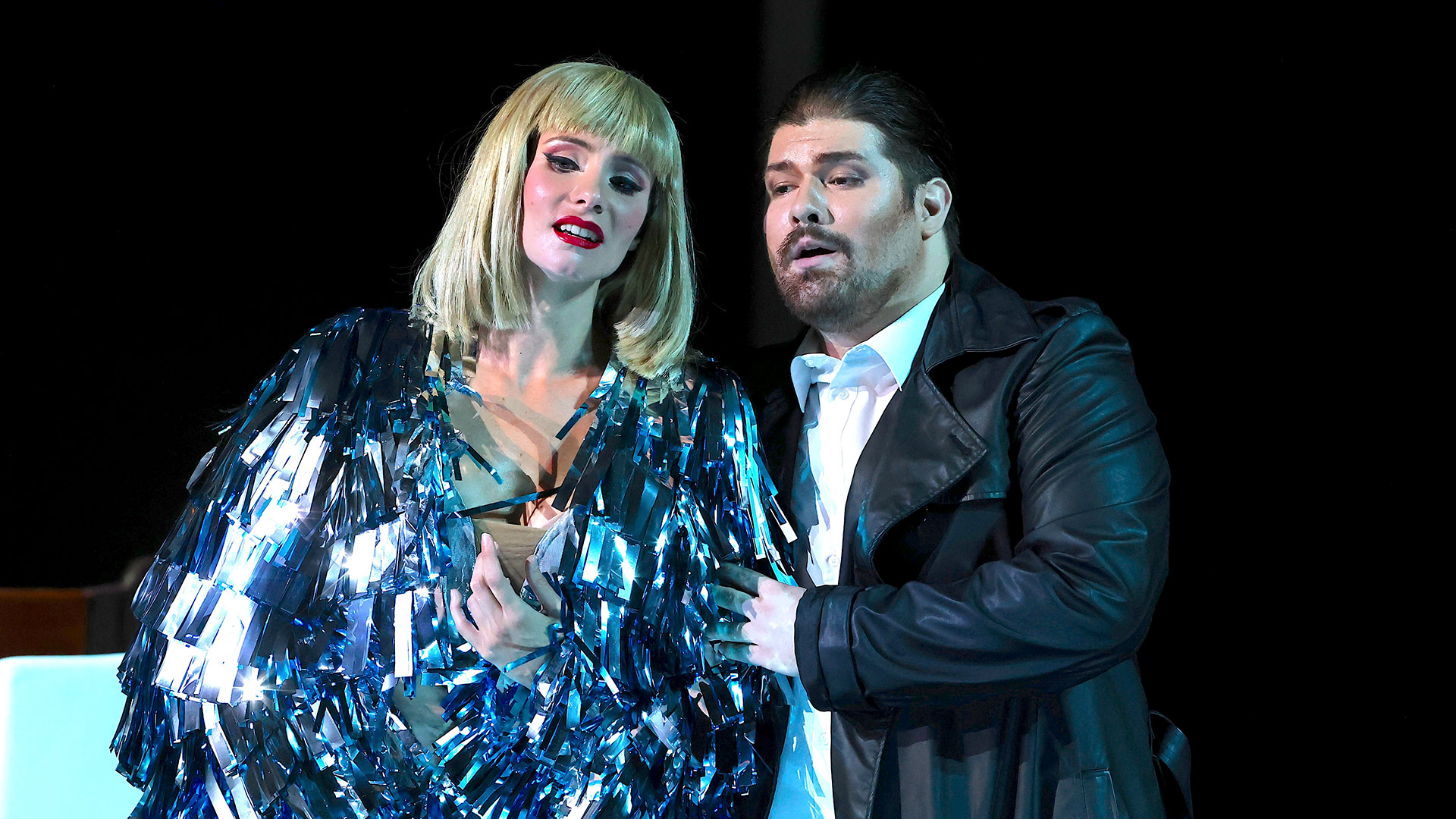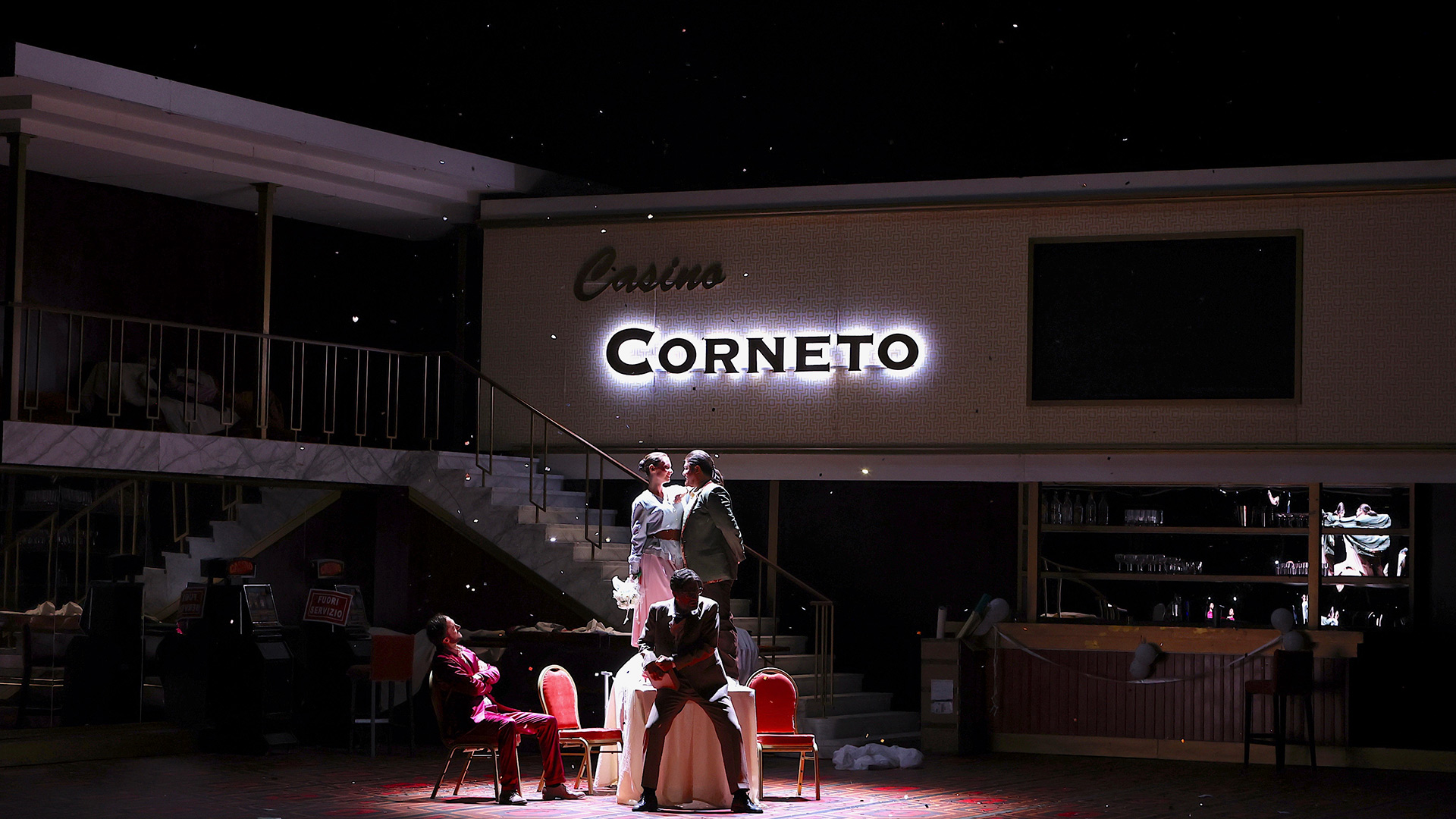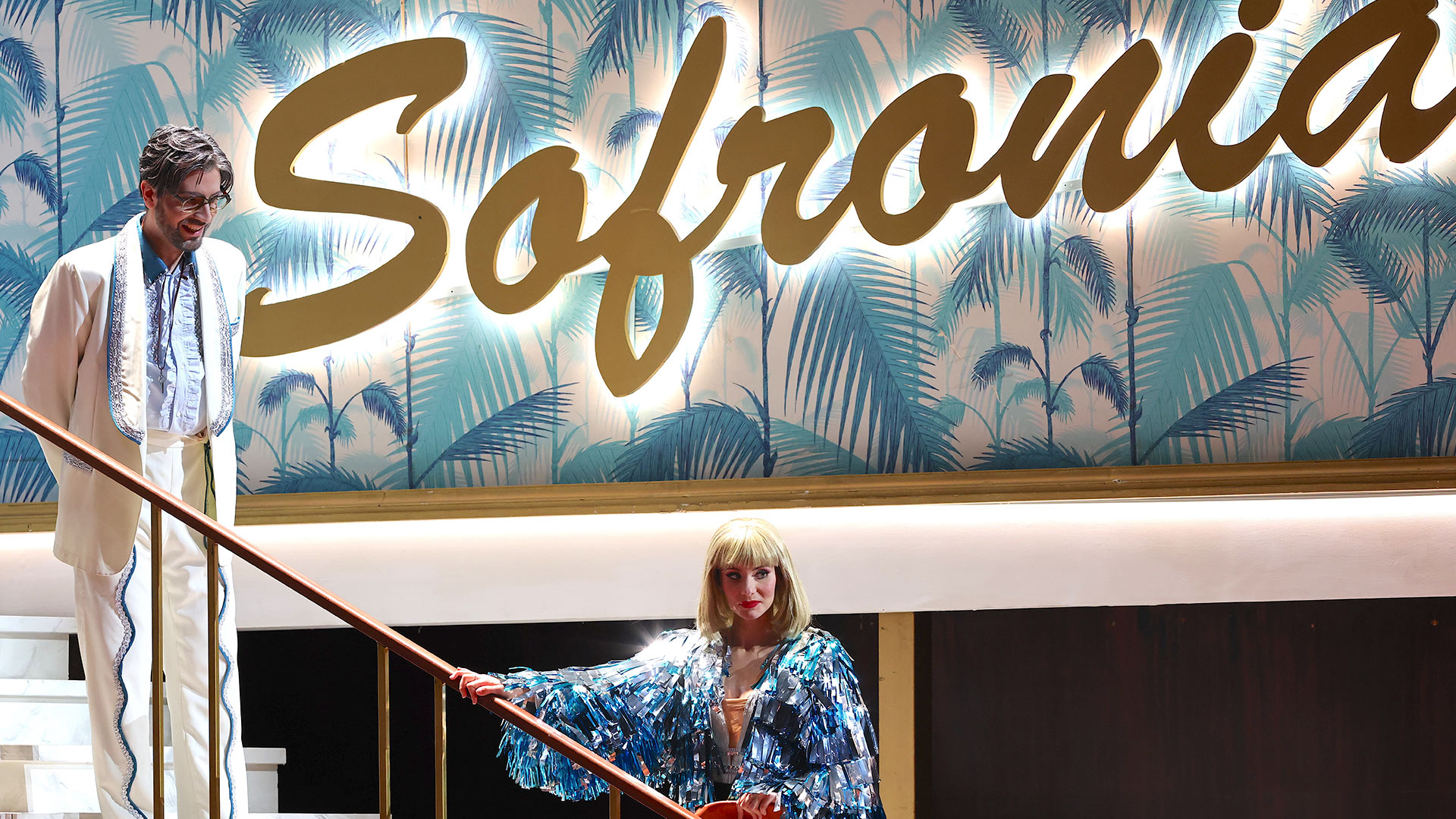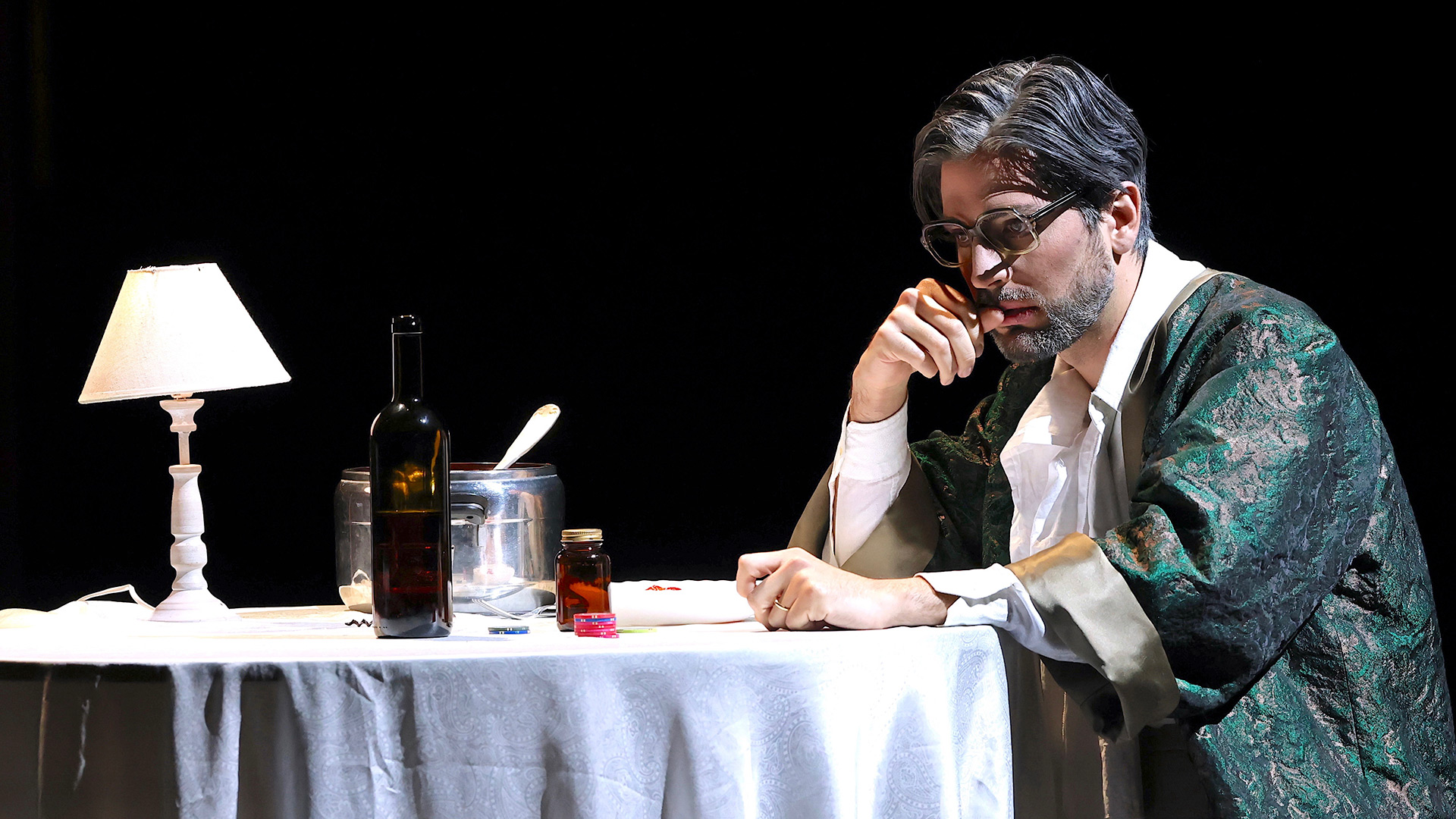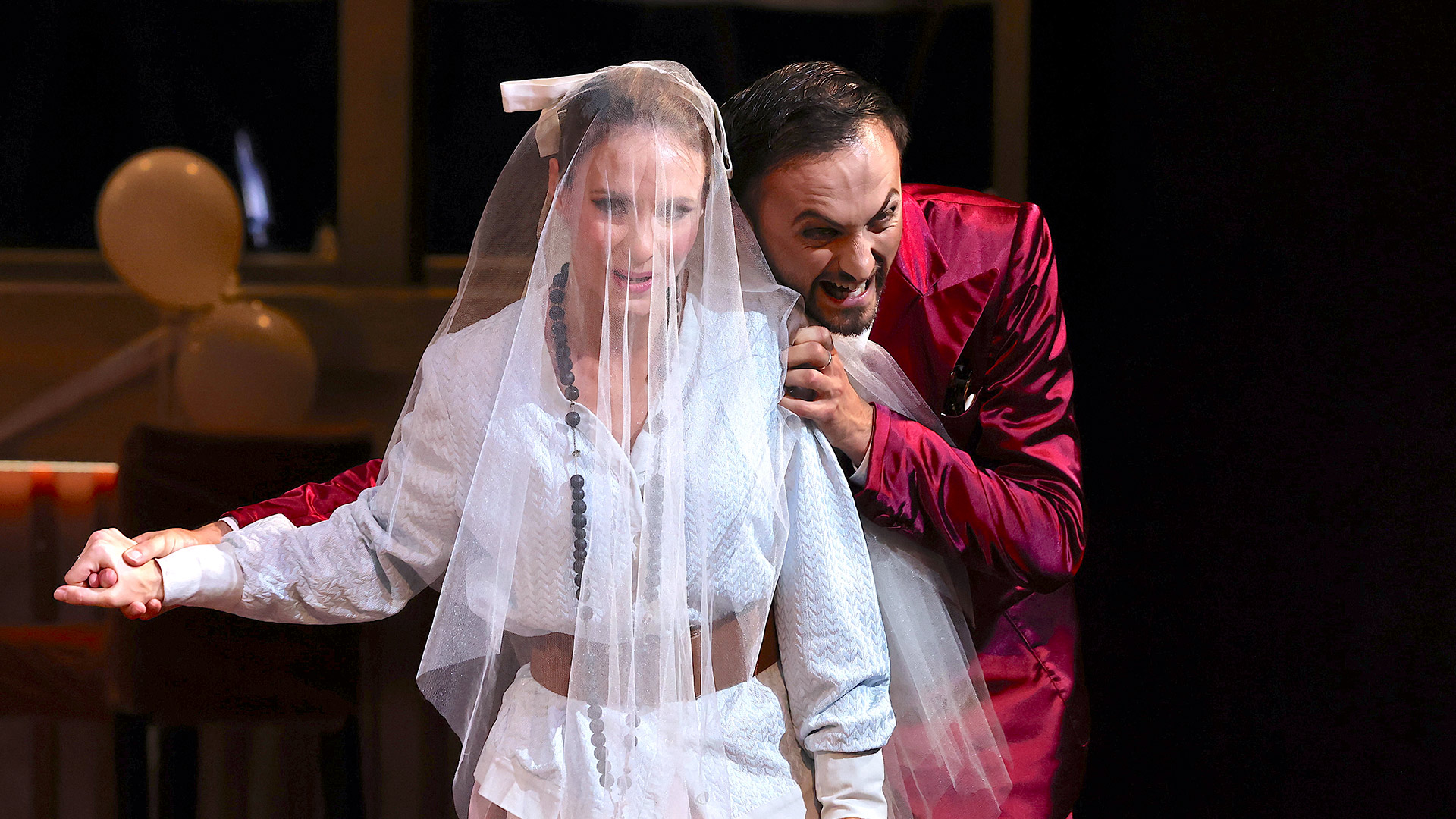Opera buffa in three acts
Music by Gaetano Donizetti
Libretto by Giovanni Ruffini
Soloists from Accademia di alto perfezionamento e inserimento professionale of Opera Carlo Felice Genova directed by Francesco Meli
Don Pasquale
Omar Cepparolli
Davide Maria Sabatino (7, 9, 11)
Dottor Malatesta
Nicola Zambon
Francesco Samuele Venuti (7, 9, 11)
Ernesto
Antonio Mandrillo
Marco Ciaponi (7, 9, 11)
Norina
Maria Rita Combattelli
Angelica Disanto (7, 10)
Silvia Caliò (8, 11)
Un notaro
Franco Rios Castro
Matteo Armanino (9, 10, 11)
Conductor
and orchestrator
Francesco Ivan Ciampa
Director
Andrea Bernard
Scenic designer
Alberto Beltrame
Costume designer
Elena Beccaro
Lighting designer
Marco Alba
Videomaker
Pierpaolo Moro
Staging
Fondazione Teatro Carlo Felice di Genova
Orchestra, chorus and Technicians
Fondazione Teatro Carlo Felice
chorusmaster
Claudio Marino Moretti
Staging director
Luciano Novelli
Stage musical director
Paloma Brito
Répétiteurs
Sirio Restani, Antonella Poli
Stage musical assistants
Andrea Gastaldo, Anna Maria Pascarella
other Choir Master
Patrizia Priarone
Lighting Master
Bernardo Pellegrini
Supertitle Master
Simone Giusto
Head of musical archives
Simone Brizio
Scenic director
Alessandro Pastorino
Vice scenic director
Sumireko Inui
Consolle supervisor
Andrea Musenich
Stage technicians foreman
Gianni Cois
Tooling foreman
Tiziano Baradel
Audio/video foreman
Walter Ivaldi
Head of tailoring, shoemaking, make-up and wigs
Elena Pirino
Director’s assistant
Tecla Gucci
Choreography
Irina Kashkova
Choreographic assistant
Olga Birukova
Assistant lighting designer
Alberto Rossini
Make-up and hair co-ordinator
Raul Ivaldi
Scenes, costumes and props
Fondazione Teatro Carlo Felice
Footwear
C.T.C. Pedrazzoli
Wigs
Mario Audello
Supertitles
Prescott Studio
Opera in brief
by Ludovica Gelpi
The legend tells that the Don Pasquale was composed in just eleven days. Being this true or not, what is certain is that the composition was completed in a very short time period. Donizetti arrived in Paris in the autumn of 1842 on invitation of Théâtre Italien and worked together with Giovanni Ruffini, a scholar akin to Mazzini’s thought who fled Italy to escape a death penalty. The subject drew on an opera from some decades earlier, Ser Marcantonio by Stefano Pavesi with libretto by Angelo Anelli. During the writing of the libretto, the composer imposed radical modifications to the words of Ruffini, who refused to claim the work for such a reason (on the original score one can see the signature of Michele Accursi, former follower of Mazzini’s ideals as well and mediate between Donizetti, Ruffini and the Theater. The premiere took place the next January 3. The opera was acclaimed and it was performed the following month at Teatro alla Scala.
One of the most fascinating aspects of such an opera is that many it draws on many stylistic elements of eighteeinth-century Italian commedia d’arte, developing them into a new setting and a more specific psychological characterization and resulting into a typical narration of a nineteenth-century novel. The plot pivots on the character of Don Pasquale, a rich and aged bachelor who gets married to leave his nephew Ernesto out of his heritage. Ernesto wants to marry the young and poor widow Norina instead of a rich lady. The two lovers manage to finally get marry thanks to the unlikely marriage plan conceived by the Doctor Malatesta, who involved personally the clever Norina. The bourgeois setting represents the beating heart of the whole plot development. The opera takes place in Roe the early years of the XIX century; Don Pasquale is a bourgeois and money represent the social status defining deeply a person’s identity. His opposing character is Ernesto, who is completely detachted from the bourgeois valorization of money and follows his feelings regardless of his status as well as his father’s. Norina does not experience contrast that much. The love she longs for is also what will lead her to the richness she never had. Dottor Malatesta acts super partes, independently as a director would – almost indifferent to the narrated sentiments at times – moving the other characters as he wishes and affirming his intellectual superiority. The whole narration closes with a romantic, though bittersweet happy ending as it also represents the ultimate disillusionment of Don Pasquale and of his bourgeois dream.
The merely apparent linearity of the plot thickens thanks to the many shades of the characters’ interpretations, clearly outlining since the first act and then evolving throughout the story. On a musical level, Donizetti’s maturity stands out – Don Pasquale is his penultimate title – masterly alternating extremely light expressions with unconsoled melancholy. With Don Pasquale, Donizetti reaches his stylistic climax embracing comedy, tragedy, referring to tradition ( especially Rossini’s music) as well as the elaboration of his own musical language which constitute nowadays a fundamental reference of the European operatic dimension.
